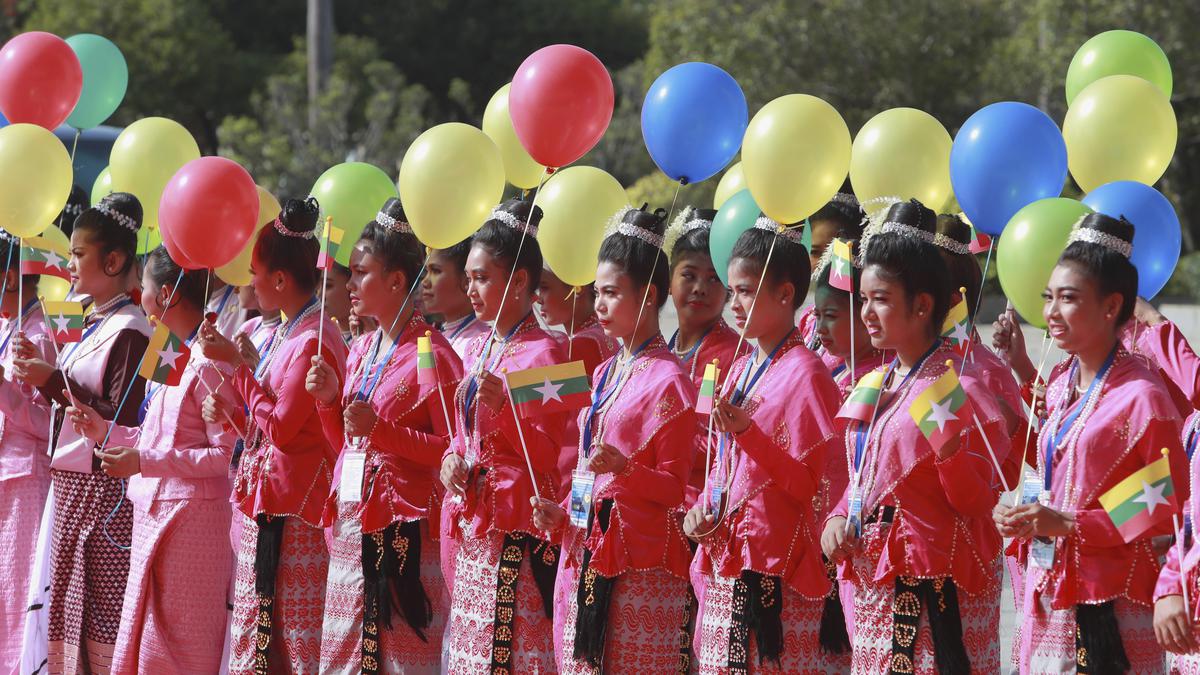
Myanmar's military seeks to keep ethnic minority allies on its side with anniversary of cease-fire
The Hindu
Myanmar's military govt hosted ethnic rebel groups to mark 8th anniversary of cease-fire agreement, but 3 signatories boycotted. The military seeks to divide anti-military rule alliances, but the agreement lacks inclusiveness and the 2021 takeover undermined chances for peace. Senior Gen. Min Aung Hlaing said the agreement is not subject to nullification. 35 political parties, 11 NGOs and 32 diplomats attended, but 3 NCA signatories faced disciplinary measures.
Myanmar's military government hosted representatives from ethnic rebel groups Sunday to mark the eighth anniversary of the signing of a multilateral cease-fire agreement. But the event was boycotted by three of the signatories that oppose the current army-installed regime.
The event in the capital Naypyitaw was the first such formal gathering of the military government and ethnic minority leaders since the army seized power from Aung San Suu Kyi's elected government on February 1, 2021.
Maintaining a cease-fire with as many groups as possible is crucial for the military government, which for more than two years has been faced with nationwide armed resistance from opponents of its 2021 takeover. Those pro-democracy forces have crucial alliances with, or support from, several ethnic rebel groups. The military has launched offensives in the territory long under the control of the ethnic minority groups.
In order to shake and divide the anti-military rule alliances, the military government has also conducted a series of in-person peace talks with the leaders of ethnic minorities since May last year, with little to show for its effort.
Myanmar has 21 established ethnic armed organizations and some of the largest and most powerful groups, including the Kachin Independence Army and United Wa State Army, did not endorse the cease-fire pact, which they viewed as lacking inclusiveness.
The agreement had been seen as a step toward ending the longstanding rebellions against the government but the government has always been reluctant to reach the comprehensive political settlement most of the groups have sought.
The army's seizure of power undermined chances for the peace process.













